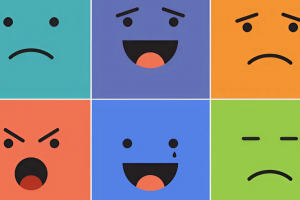In justification of allegedly unnecessary costs.
In the government's ongoing battle with the economy: A controversial component of many transactions, so-called "junk-fees," have been successfully eliminated, according to Joe Biden. But celebration is inappropriate.
Following meetings with industry titans notorious for charging these "junk-fees," including LiveNation, Airbnb, and Seatgeek, the businesses made a commitment to do away with these "hidden" costs. The Biden administration argues that these businesses sneak in these surcharges to coerce customers into paying more than they had originally expected. When presented in this manner, it appears as though the Biden administration is some kind of kindly mediator intervening to persuade greedy, dishonest businesses to cease robbing consumers. Simply said, this is untrue.
The only negotiating chip the Biden administration has is the threat of utilizing government force. These businesses are prepared to bargain because they are concerned about encroachment. In a free economy, talks like these would eventually be useless because the government couldn't force the corporations to the negotiation table. However, in the interventionist economy of today, discussions with government representatives are doomed by the threat of regulation and interference.
The threat is also believable. The president can issue an executive order and hope for the best, but Congress is actively working to stop "junk fees." The Consumer Financial Protection Bureau (CFPB) is developing new regulations to combat these costs, and the Junk Fee Prevention Act is in the works.
There is still the issue of whether or not charging "junk fees" is fraudulent. Without a doubt. Beyond the headlines, it is clear that the costs are not concealed but instead made known before the purchase is consummated. Junk costs are those that are disclosed later in the purchasing process or those that are intended to confuse the buyer, according to a blog post by the White House.
In essence, businesses are charged with exploiting a drawn-out purchasing process to gain market dominance rather than imposing secret fees. If they were committing fraud, the fees would be assessed immediately; instead, they are not. The legal system would be available to customers if hidden fees were charged.
Do customers even know about these costs? Customers have probably used the service more than once if we are talking about DoorDash, GrubHub, Uber, Uber Eats, Lyft, Airbnb, or other comparable businesses. You don't merely download the app and attach your credit card to use the service once; you go through the pain of doing so. Therefore, it's possible that many of the people who are labeled as "victims" of these fees are actually fully aware that they will be assessed.
Customers presumably weren't anticipating a precise price, even if they aren't aware. Imagine someone stepping off an aircraft and finding they neglected to make travel arrangements to get to their hotel. Although they are aware of Uber, they have never used it. They obtain the app and reserve a vehicle. A number of fees are listed when the price is presented before the purchase is completed. Because they don't have many other options, they select "purchase". What grounds are they required to complain about? This hypothetical person's conduct is unlikely to have changed if the fees had been disclosed along with the purchase.
Undoubtedly, many have experienced something similar (including myself). The other mentioned corporations can conjure up a comparable scenario. This proves that those who oppose "junk fees" are making things up, at least in terms of the notion that consumers are being "deceived."
Aside from that, the government also charges a lot of unnecessary fees, so it's not just the private sector that is to blame. How often have you purchased anything only to discover afterwards that a fee or tax was levied by the government? You most definitely have, and you're not the only one. In order to do rid of "junk fees" and even hidden fees, the Biden administration would do away with all federal taxes and fees and collaborate with state governments to do the same.
In the end, "junk fees" do not hurt customers. In fact, if they were forbidden, they might appear as another fee that was revealed at the time the sale was finalized or be included in the upfront market price. These so-called "hidden fees" are probably known to consumers, who factor them into their plans. To make it appear as though it is winning the struggle against rapacious capitalists and standing up for the common man while eradicating them, the government is looking for an adversary and an easy battle to wage. But upon closer inspection, it turns out to be a farce.


























